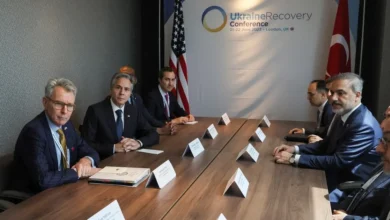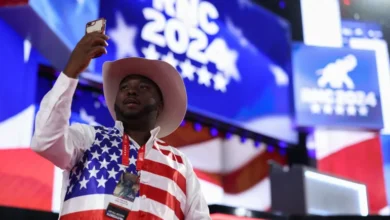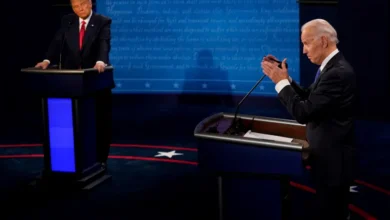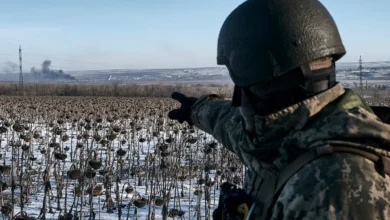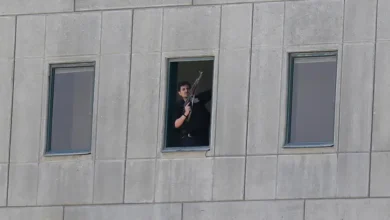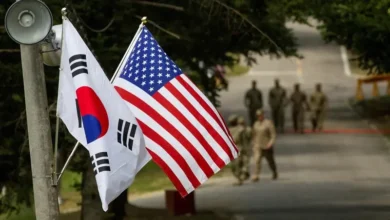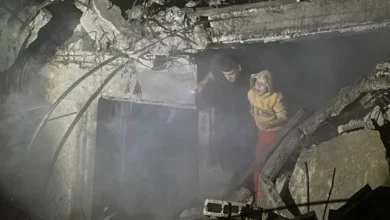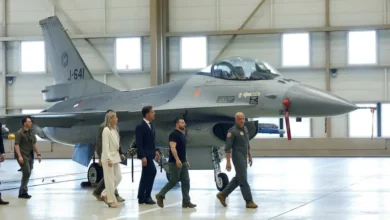‘Like a mafia’: Israeli settlers, forces squeeze Palestinian shepherds out

With two of his sons in prison and his cattle pens – his livelihood – all but emptied, Palestinian shepherd Kadri Daraghmeh, 57, was beside himself.
Inside their open-air tent, with no running water and minimal electricity, his sick wife fought back tears.
“My children are in prison, and every day it’s just more money I need to pay when we don’t even have money to buy food,” said a devastated Kadri.
Kadri’s woes began to worsen dramatically last month. On December 25, he says, settlers stole 100 of his cattle in the night, released some cows near a road, and then called Israeli police.
Cattle “roaming freely” is illegal under Israeli law, so the police confiscated the cows. Kadri was forced to pay 49,000 shekels ($12,900) to get 19 of his cows back.
Kadri could pay only with the help of friends and Israeli activists.
Kadri wanted to move on from the ordeal, but on the evening of January 7, two of his sons called to tell him they had been entrapped by a settler named Uri Cohen and arrested.
Cohen contacted Jaser, 29, and Rihab, 19, and offered them a spot where they could graze their cattle undisturbed. It was an offer that was difficult to refuse. In the earlier days of the war, settlers, including those working for Cohen, had been attacking shepherds and their flocks with weapons, unleashing dogs or even scaring the sheep away with cars, and in more recent weeks such confiscations by authorities were on the rise. And “each time [there was an incident]”, recalled Kadri, “Uri would say: ‘Why do you need these problems? Sell your cattle to me.’”
So Kadri’s sons decided to take up Cohen’s offer. But when they got to the spot, Cohen called the council inspector, a settler, who in turn called the police. Police came and cuffed the two men to each other and confiscated the 60 cows with them, for bringing the cattle onto “private land”.
When he got the call, Kadri, his wife and two other sons – Luay, 31, and Basel, 27 – rushed to help.As Kadri was protesting to Shai Eigner, a local settler who is a land inspector for the Jordan Valley Regional Council, a border patrol officer arrived, who shortly thereafter punched him in the face, making him bleed, and threw him to the ground.
Spooked by the violence, Luay and Basel ran back to the car. Shouting at Kadri’s sons to stop, the border patrol officer began to shoot at the car.
The Israeli officers arrested Luay and Basel and took them to the police station. Later, they were transferred to Ofer prison and then, a week later, to another prison. Basel was released after a week and a half, while Luay was released on bail after more than two weeks, accused by the border patrol officer of trying to run him over.
Jaser and Rihab, who had brought the cattle, were taken to a remote area the night of January 7 by Israeli security personnel – and left there to fend for themselves.
Kadri has been left with almost none of his cattle, his livelihood, and facing a 120,000-shekel ($31,600) bill he must somehow pay to retrieve the 60 cows the local settlement council is holding. The tab increases by 50 shekels per cow per day.
Attacks and harassment from settlers and soldiers were happening before October 7, the day the Hamas attacks on Israel took place. But, Kadri says, this incident was the first time it was premeditated and coordinated. “This was the first time the settlers, the police and the army came together, like this, to make one fist,” he said.
